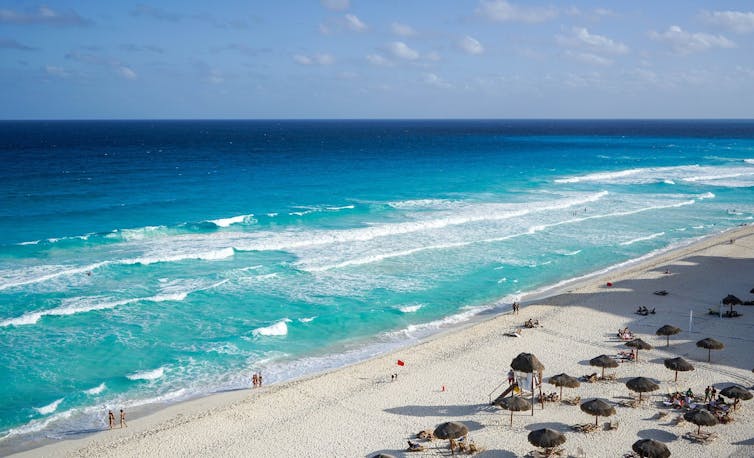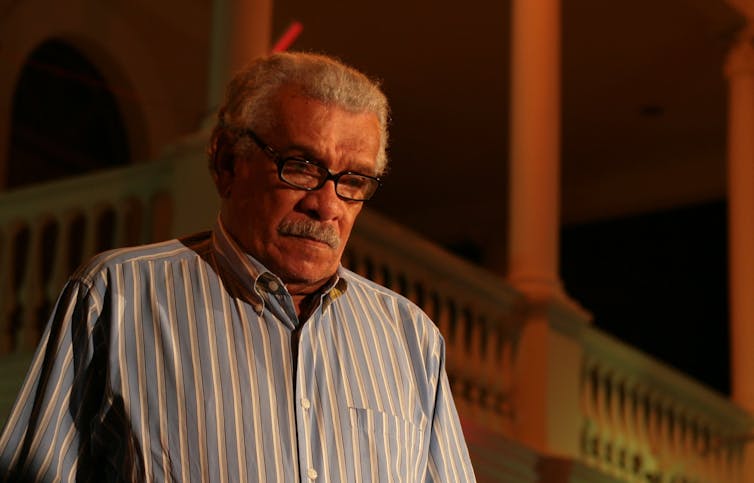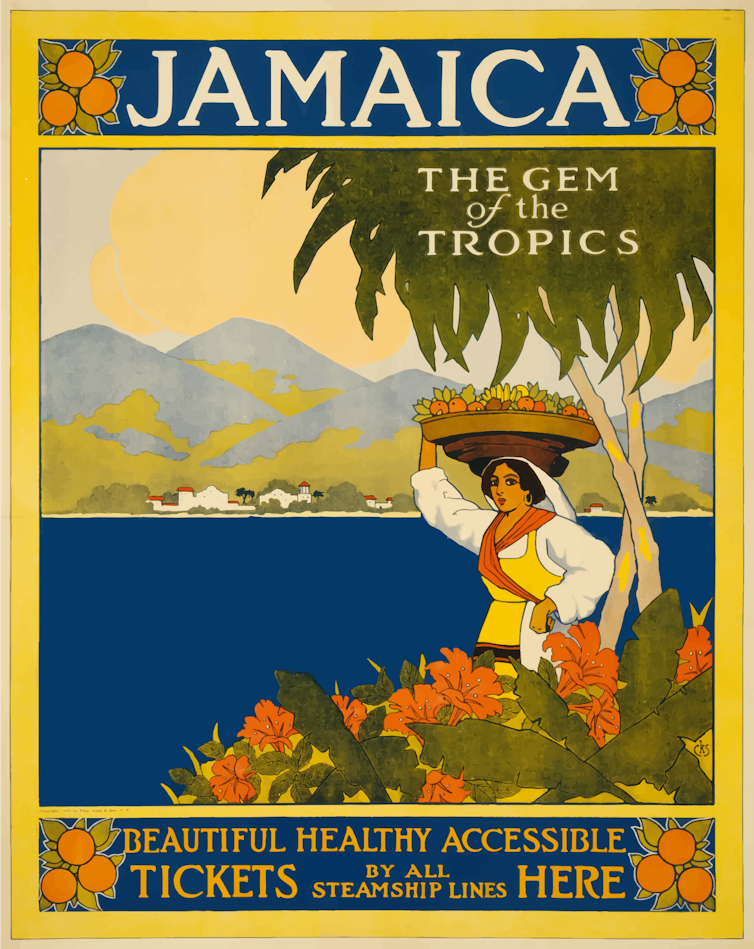Descriptions of the Caribbean have prolonged minimized the location to the luring trinity of sunshine, sea and sand in buy to sector it as the best holiday break place. The splendour of its rainforests and the aquatic hues of its coral reefs are undeniably beautiful.
But Caribbean islands are also residence to persons, animals and other non-human species whose intricate histories have been formed by exploitative tourism.
In the west, the strategy of a “paradise lost”, as popularised by Milton’s well-known epic poem telling the story of Adam and Eve, gave rise to a hunt for “undiscovered” Edens however present on Earth.
When Christopher Columbus arrived in the New Entire world, the appeal of an earthly paradise was at its zenith in Europe. Environment out with the intention of achieving East Asia to establish a lot more effective intercontinental trade routes – as nicely as to spread Catholicism – Columbus appeared to be having his cue from the Bible, whose E-book of Genesis describes the garden of paradise as currently being planted “eastward in Eden”.
But when Columbus initially established foot on what was in simple fact a Caribbean seashore, the normal landscape presented a further, secular prize: the assure of infinite riches from the pure globe.
Guaranteed adequate, the raising buzz in the West about the lookup for paradise grew to become fewer about pleasing God and much more about greed for travellers like Columbus, as evidenced by colonisers’ exploitation of indigenous persons and extraction of prosperity from normal and organic sources.
The neocolonial paradise
The seductive modern-day image of paradise, with its golden sands and crystal waters, evolved as element of a neo-colonial project of tourism, as the movement of foreign electrical power was remaining reimagined in the wake of the collapse of European empires.
From travel brochures to tv ads, the tourism industry presents the unethical idea that paradise can be bought just like any other commodity.

Pixabay/Michelle Raponi
The myth of paradise has turned the Caribbean location into a place open up to invasion by the best bidder. Westerners are inspired to escape from the monotony of each day everyday living to be serviced at the fingers of labourers – a dangerous echo of everyday living on the plantation for enslaved African persons.
Poetry as protest and resistance
Lots of up to date Caribbean writers go over some of the Caribbean’s most urgent environmental and social fears, which include exploitative tourism, dwindling community land rights and underpaid citizen labour.
Jamaica Kincaid, Michele Cliff and other folks have likened tourism to a renewed version of colonialism. For me, the most putting crafting on the Caribbean natural environment will come from the St. Lucian poet Derek Walcott.
Walcott, in his poem “Midsummer XXVII”, describes how mother nature in Trinidad has been “replaced or modified” by the “grey, steel light” of know-how. Less than the joint influences of colonialism and extractive capitalism influencing the islands, the Caribbean sea begins to appear to be like “sheets of zinc” and the sunshine like “steady acetylene”.

Stanislav Lvovsky/Flickr, CC BY
The dominance of tourist-oriented, fairly than neighborhood-oriented, enterprises is also prompt in Walcott’s poem “The Star Apple Kingdom”, which describes the “ulcers” of “hotels”, “casinos”, “brothels”, and the “empires of tobacco, sugar and bananas”.
In his Nobel prize lecture, Walcott condemns vacationer brochures for reducing the monumental range of the Caribbean environment to blandly desirable seaside vistas out of “the shame of necessity”, mourning the islands’ “future of polluted marinas”.
My investigation into environmental racism and the harming fantasy of Caribbean paradise has also been impressed by the get the job done of the Bahamian-born poet Marion Bethel. She writes about how colonial violence led to the brutal demise of the Caribbean atmosphere by way of forest clearance, soil erosion and reef destruction.
In her poem “On a Coral Cay”, Bethel protests how in the Bahamas “the whale completed useless … we no for a longer time whale or wreck”. She also considers how the consequences of the colonial past have catalysed new forms of environmental degradation in the existing day. “Tourism”, she writes, “is king / divine and banking, a silver prince”, and this “tourist plantation” and “banking estate” has produced the natives “waiters” who “service the world”.

GDJ/OpenClipart
Be an moral tourist
Listening to Caribbean voices should prompt us to practice extra moral journey as vacationers. Going to the Caribbean for a holiday break is not in alone immoral, but Bethel, Walcott and other Caribbean writers have condemned unethical tourism techniques.
Irrespective of the economic value of tourism in the Caribbean, the nearby atmosphere and notably maritime life carries on to go through as a consequence of unsustainable pursuits catering to demanding travelers.
Income from tourists is not often distributed evenly: so aid native enterprises by buying domestically instead of at well-known, typically foreign-owned chains. Be respectful of indigenous customs and traditions. Do a lot more than dwell in the luxurious of your lodge or on the beach front: immerse yourself in Caribbean culture by checking out museums and historical sites. Opt for eco-friendly transportation. Don’t litter. Choose pics of the land and the animals with warning and respect, and make positive the local people give their permission ahead of they conclusion up on your Instagram feed.

